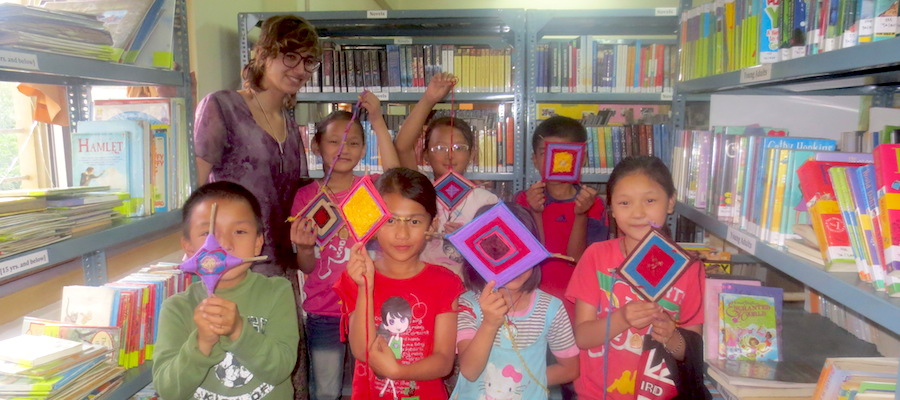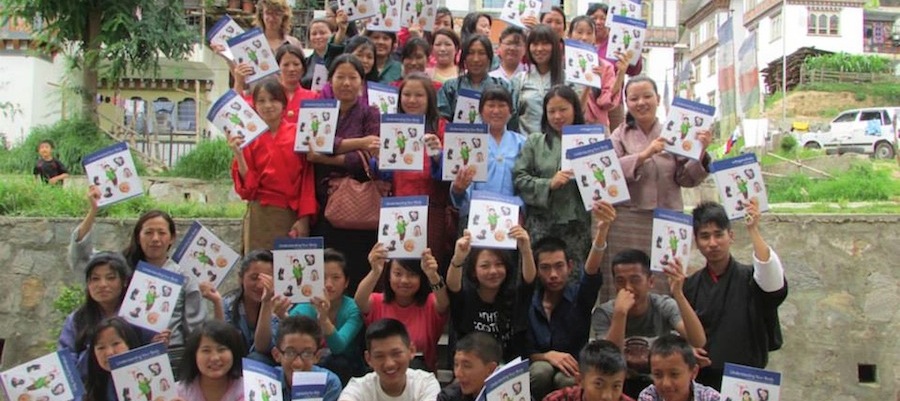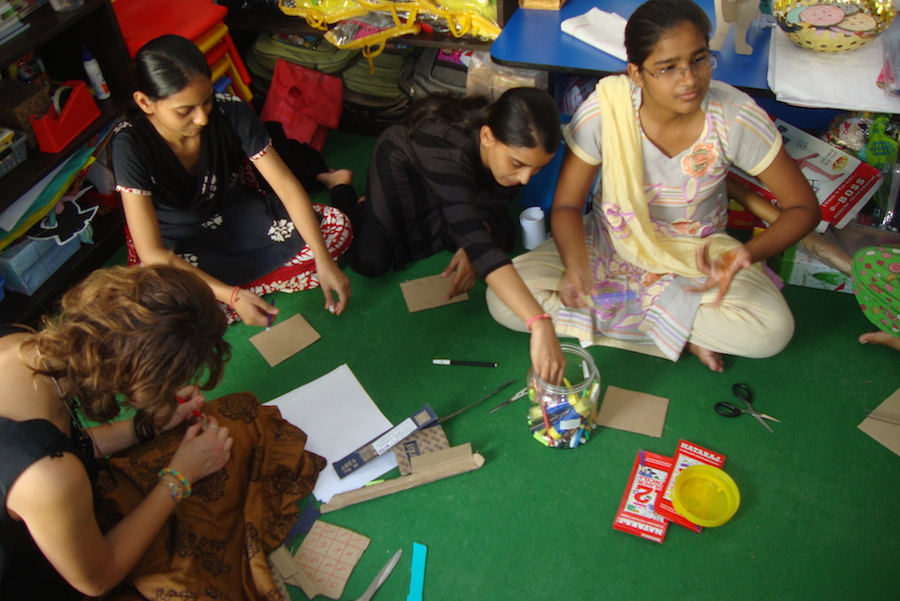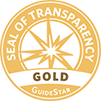
This blog post was written by Sara Mitsinikos, who volunteered with READ in Bhutan and India in the summer of 2014.
Our world is globalizing at an increasingly rapid pace, impacting everything from local economies, to social norms around gender, to the environment. These changes impact people around the world – including rural villagers in the far reaches of Bhutan and India. This summer I felt fortunate to volunteer with READ in India and Bhutan to help address some of these challenges, assisting with training programs in environmental education, women’s empowerment, vocational skills, and English.
Our global environment is changing, driven by land use, fossil fuel emissions, and more, and the effects reach rural communities in South Asia.
In READ’s Model Center at the Changjiji Library in Thimphu, Bhutan, I lead the Nature Club and Arts and Crafts programs to address this challenge. I took both clubs as an opportunity to advance the children’s understanding of the importance of environmental stewardship, via fun and engaging activities like repurposing plastic bottles into terrariums. Environmental conservation is one of the nine pillars of Gross National Happiness (GNH), a holistic indicator of social and economic progress that is used by the government of Bhutan. The children’s enthusiasm in these activities showed that they gained a greater appreciation and value for nature.
Women also face unique challenges and opportunities in this globalized world: from civic participation to choices about their health.
Women participate in a great number of programs at READ Centers, in order to bring them independence, confidence and security. For example, the Knitting Club at the Changjiji Center provides an opportunity for women to sell their creations and generate an income as well as a safe and relaxing environment to chat and engage in a therapeutic activity.
I was honored to help in celebrating the first International Women’s Education Day on July 13th in Bhutan. Women gathered for a viewing of a video called “Women Represent,” about the advances women in Bhutan are making in civic participation and leadership roles in their communities.

Following the launching of the video was the distribution of a women’s health book, “Understanding Your Body: A Practical Guide to Women’s Health.” Too often women keep their medical problems secret due to lack of education of what’s going on in their own bodies and embarrassment. Distributing the books brings the importance of maintaining and understanding women’s health into the open.
Countries around the world also feel pressure to develop in order to better participate in the global economy. Both vocational skills, and an understanding of the English language can greatly facilitate this participation.
English often serves as a common language through which people from all over the world can communicate. To work towards this goal, I lead English language programs for children at two Centers in India. We used games and activities, drawing, song and dance to teach and practice English, Hindi, math, and more.

I also became involved with a teacher-training program at the READ Center in Dwarka, New Delhi to give women the skills to get jobs in education. I taught women how to make teaching aids using waste materials, as the villages where they may be teaching will not always have all the resources of schools in urban areas. This program not only gives the students enrolled a better future by equipping them to be teachers, but also the next generation of students they will mold.
I so greatly admire what READ is doing for the people it serves. There are so many programs that give the people the training they need to have a brighter future.
From trainings on the environment and women’s empowerment, to English and literacy skills, to vocational skills training in computer applications, beautician work, teacher training, sewing and more, I saw an incredible eagerness of everyone to learn at READ Centers. This, and the openheartedness I was met with, made this summer an immensely rewarding experience. I left Asia knowing I was working with a truly world-changing organization. The services READ is providing are invaluable and give so many people a bright and sustainable future that would otherwise be unattainable.
Share this blog post with your family and friends!
![]()
![]()
![]()
About the author:

Sara Lynn Mitsinikos, READ Volunteer
Sara volunteered with READ in Bhutan and India in the summer of 2014. She is a student at Wheaton College, a liberal arts school in Massachusetts. She is expected to graduate with a degree in Biology and a minor in Anthropology in May 2015. Previously to volunteering with READ she has held internships with Better Future Project, an environmental NGO based in Cambridge, MA; and Numen Film, a documentary about the healing power of plants. In 2013 she studied at Royal Thimphu College, during which time she developed an interest in South Asia.



